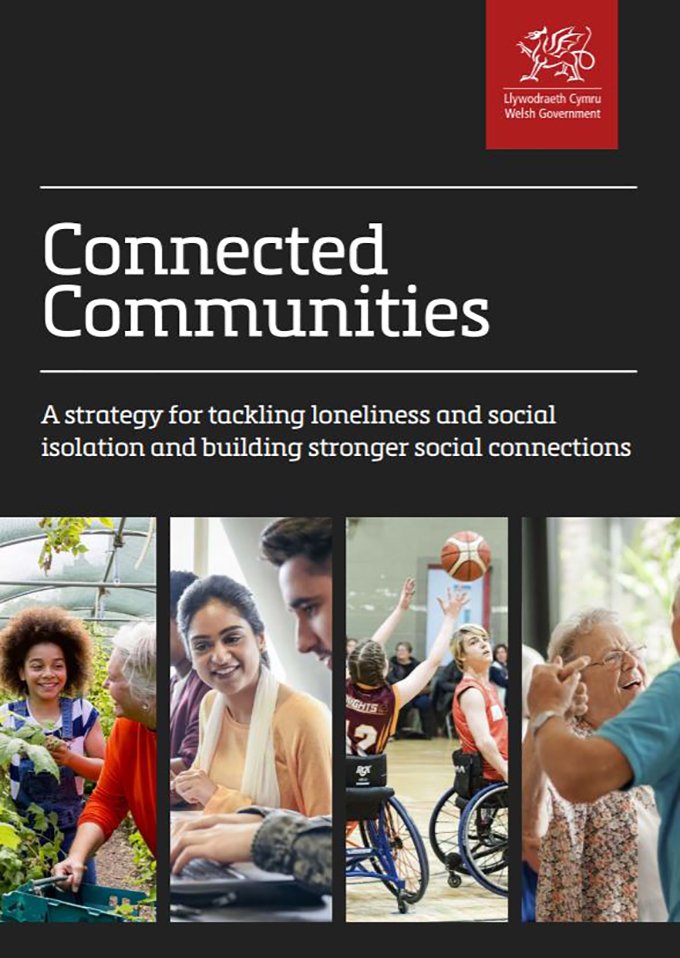The Welsh Government’s 2017-18 National Survey for Wales showed 16% of the population aged over 16 years said they felt lonely. In response to this, the Deputy Minister for Health and Social Services, Julie Morgan AM, has launched Wales’ first ever loneliness and social isolation strategy, called Connected Communities: A strategy for tackling loneliness and social isolation and building stronger social connections.
The strategy will be supported by a £1.4 million loneliness and social isolation fund over three years. The fund will support community-based organisations to deliver and test out, or scale up, innovative approaches to tackling loneliness and social isolation.
The strategy has four priority areas:
- Increasing opportunities for people to connect. This priority sets out how the Welsh Government will work with others to increase the range of opportunities, to ensure awareness of them and encourage and support people to use them.
- Improving community infrastructure that supports connected communities. This includes planning, housing and transport, to support people to come together.
- Cohesive and supportive communities. This aim sets out some of the areas where the Welsh Government is taking action already and how, working in partnership, it can go further.
- Build awareness and promote positive attitudes. This sets out how the Welsh Government will raise the profile of loneliness and social isolation and reduce stigma.
In response to the publication of the strategy Dr Sam Abraham, Vice Chair of BGS Wales Council, commented:
We warmly welcome the Welsh Government’s publication of Connected Communities – A strategy for tackling loneliness and social isolation and building stronger social connections. The British Geriatrics Society responded to the consultation that led to the development of this strategy in early 2019. In our response we emphasised the importance of training for healthcare professionals to better recognise loneliness, and the vital role that social care has in helping to address this issue among older people. We are pleased to see that this publication recognises older people as one of the groups at greatest risk of experiencing loneliness, and we are delighted that the Welsh Government will be publishing a Strategy for an Ageing Society later this year. The BGS would be pleased to contribute to the development of this strategy and we will be reaching out to key decision makers to extend this offer. Feelings of loneliness do not have to be an inevitable part of growing old. There is much that all of society – from government right through to community groups and individuals – can do to better support older people experiencing loneliness. We recognise that voluntary organisations play an especially important role tackling loneliness among older people living with frailty, dementia, Parkinson’s disease and other chronic conditions. We applaud their ongoing efforts to support this particularly vulnerable population group. While we may remain proud that people are living longer lives, this alone is not sufficient. We must also ensure that they have a good quality of life and that they are enabled to live fulfilling and happy lives into their later years.”
Download the full BGS response to the Welsh Government's consultation on its strategy here.
